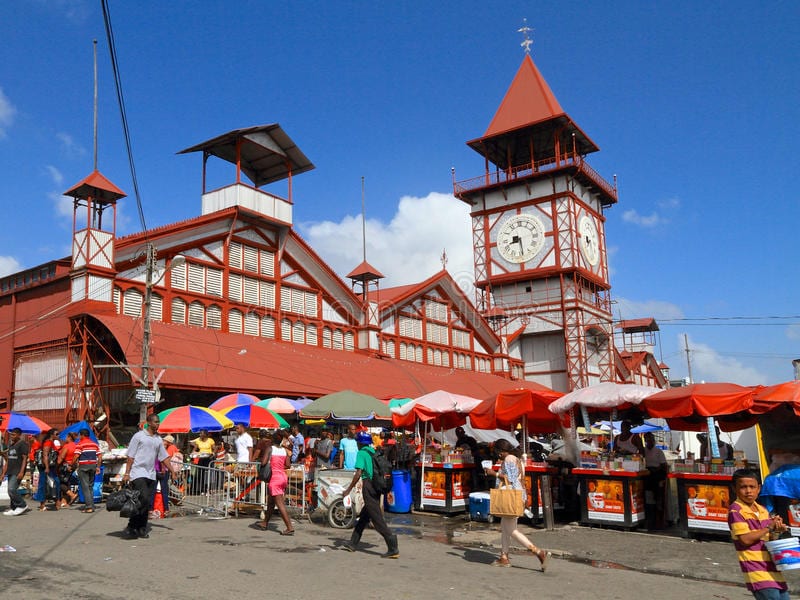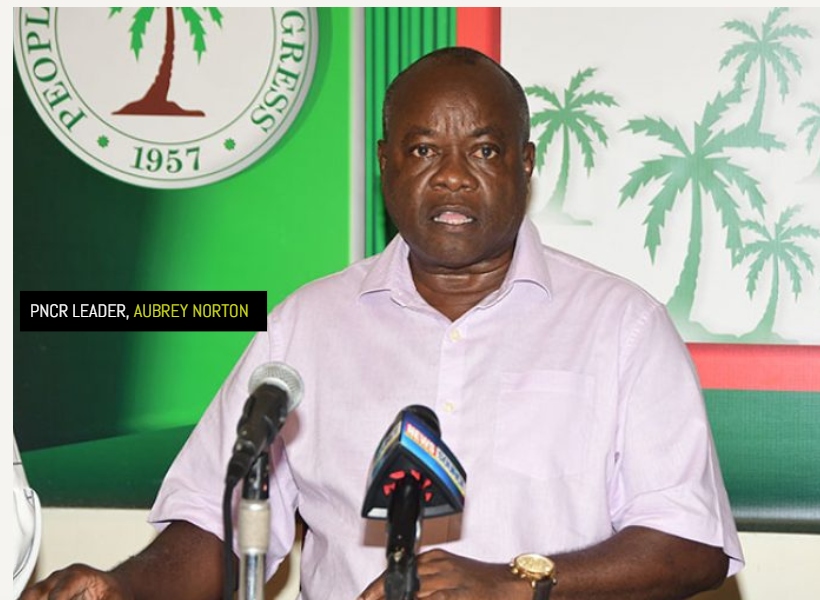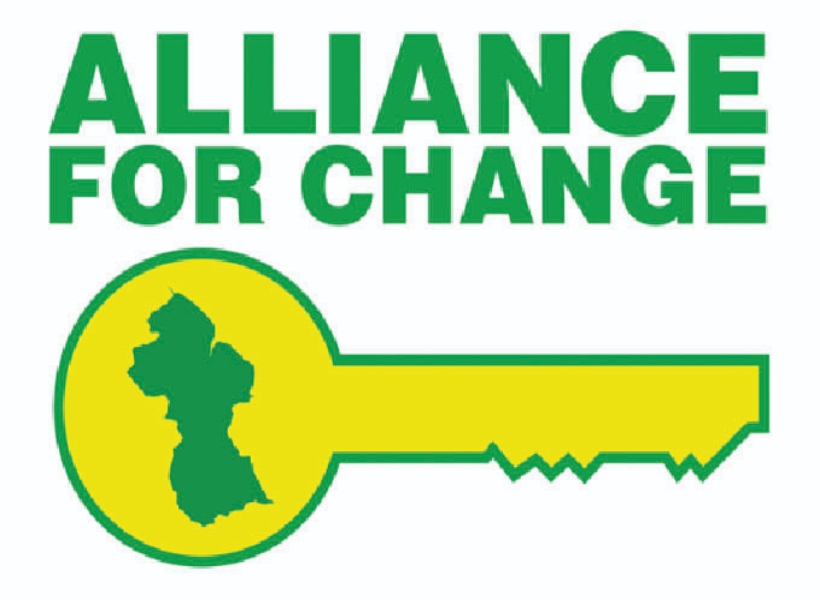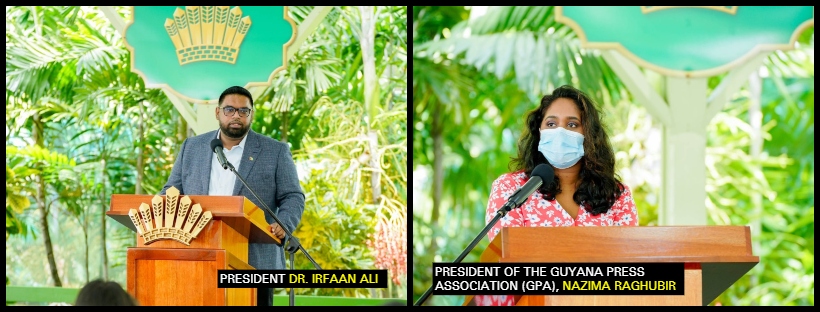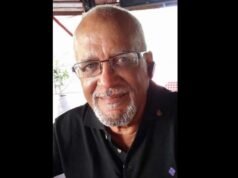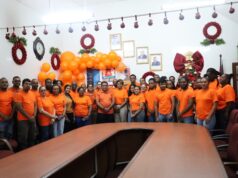Yesterday, the Office of the President hosted its traditional media brunch, an event aimed at promoting goodwill amongst the media and the government. The official programme, albeit short, saw the President of the Guyana Press Association (GPA), Nazima Raghubir highlighting issues affecting the media and President Dr. Irfaan Ali, in turn, largely addressing that which was highlighted.
Raghubir told the President that the pandemic has exposed media houses to financial instability. She said too that the advertising pie, on which most of the media depend, continues to shrink, threatening the existence of true and independent media in our growing democracy. “And with the pandemic that pie has virtually disappeared,” she said.
Raghubir iterated GPA’s call for an even playing field in the allocation of state ads to accredited and recognized media houses- online, television, radio, and newspapers.
She was keen to note that media houses are not the same as social media commentators, “we have different duties and ethics and provide a service unmatched.”
Further, the longstanding media operative affirmed that no administration should be funneling taxpayers’ dollars to “media squatters who do nothing more than diminish the quality of media and by extension under-educated and under-inform the public to the long-term detriment of the holistic growth and development of the society. Guyana is a party to the Sustainable Development Goals, but none of them is achievable without a properly informed and educated nation.”
She said that unlike social media commentators, the media has to provide factual and unbiased information to the public which calls for the use of fact-checking journalism skills.
Raghubir then called for more frequent engagements with the press. She reminded President Ali that the press briefings by him and key government ministers are just not about engaging the media, it is about informing the public on critical issues.
The GPA President called for the return of the post-Cabinet press briefings which provided the country with that needed update on our internal affairs. “We also want to encourage more frequent interaction with health officials, so we can raise awareness about the pandemic that continues to affect lives.”
When he addressed the media, President Ali said that his administration continues to see the media as an invaluable partner for the development of Guyana and the preservation of democracy.
Speaking to the concern about economic viability, the President said that it is his considered opinion that Guyana will see a significant transformation in the very near future. He noted that many local businesses hardly cater for marketing and advertising. However, with the imminent growing competition, Ali thinks that the private sector will be forced to finally start budgeting for advertising. The President said that that necessary move will help to alleviate the financial strains on the media. Even as he noted such a possible source of funding, the President committed that the government will also spread ads across the media. Ali expressed hope that more money to the media would mean better pay for all media workers.
His response to the call for more access to information saw the President committing to a return of the post-Cabinet press briefing and other such like avenues for the issuance of information. The President said that he would have no qualms about this as he recognizes the need for the media to be fully informed about the direction in which the country is going.
The President put on record that he is always open to constructive criticism but stressed the point that trust needs to be built. Ali said that a lot can be made of the partnership between the media and government if trust is made the foundation.
Ali noted that he expects great things for Guyana and said that the media will be able to share in the nation’s impending prosperity.


